DLA Showcase
November 14, 2019

Faculty/staff/student teams gave 5-minute lightning talks about digital projects from a range of disciplines, including Studio Art, the Civic Engagement Center, Computer Science, Environmental Studies, Geography, German, and History. There were faculty research projects, course assignments, public-facing work, cross-disciplinary efforts, open-access resources, and projects in which students play a prominent collaborative role. Some were fully-realized projects to provide big inspiration, and some were in very early stages to provide a sense of manageable entry points. Break-out-session style Q&A gave attendees an opportunity to learn more about individual projects and see demonstrations. (See below for details about featured projects.)
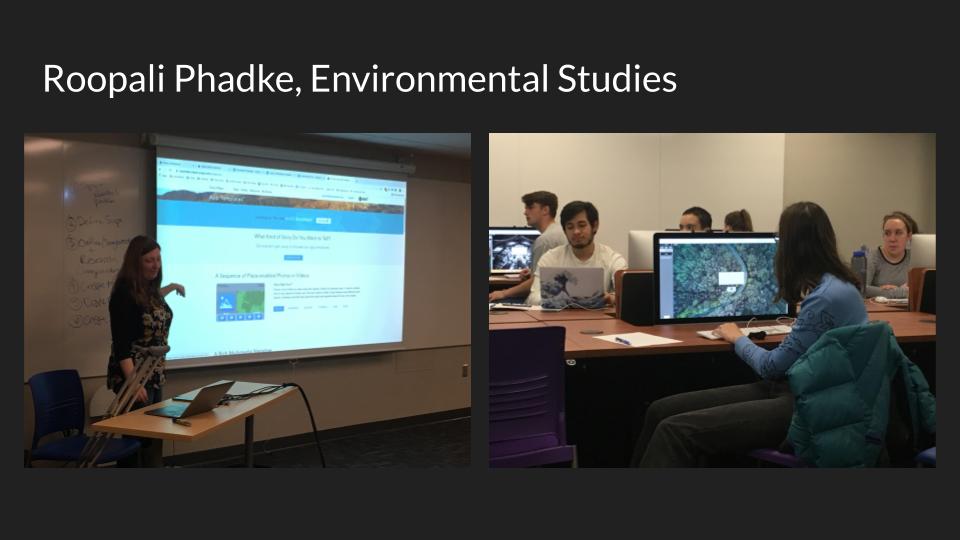
Storymaps assignment
“Every year in my Environmental Ecologies class, I give my students an assignment to write the biography of a river. This mapping project seemed like a good way to think about how to give students a new kind of skill in the process. And it’s raising interesting questions for me as a teacher: how do we teach and grade projects that are not traditional papers, thinking about learning curves, students with different starting competencies, and the value of the process?”
~ * ~
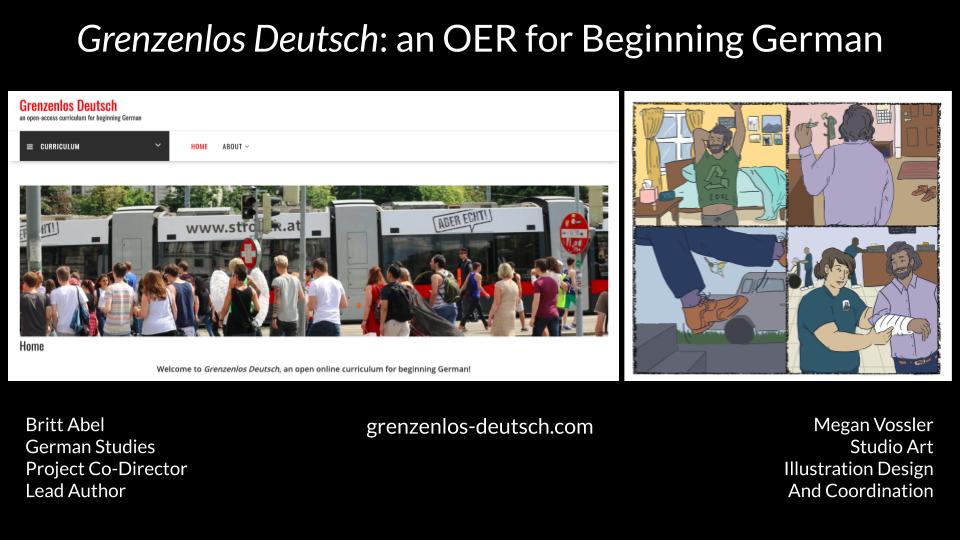
Grenzenlos Deutsch: an OER for Beginning German
“Having just attended a presentation on the value of open access resources, I was struck by a friend’s call for a first-year German curriculum that was inclusive and represented the diverse world of German speakers as it is today. This collaboration between a dozen student artists and nine German professors from an international array of universities has produced an entire open access, inclusive first-year curriculum, including video and photo content. The project depended on sustained collaboration and give students a great opportunity to work for a real client in developing their work.”
~ * ~
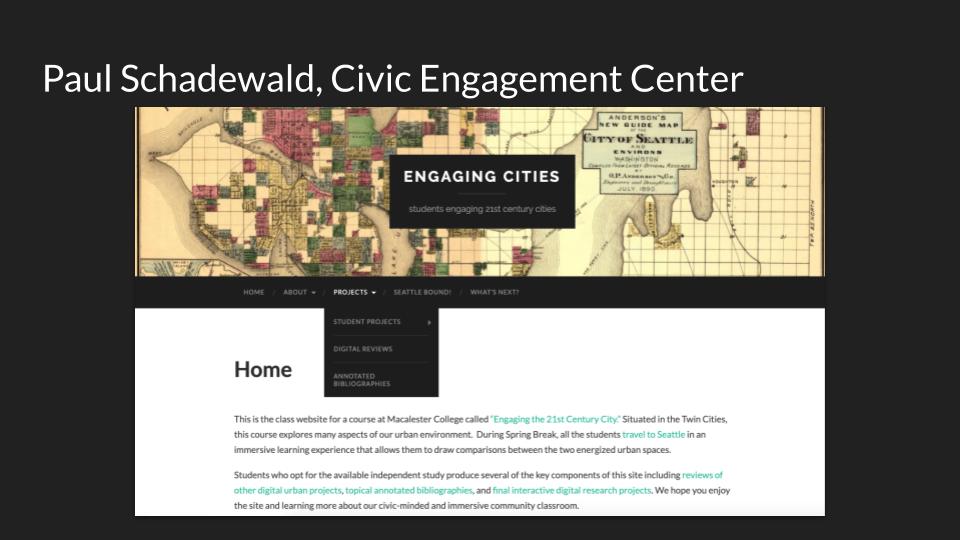
Engaging Cities
“This project focused on embedding a study away experience over spring break as part of a larger class. Focusing on what it means to do good, the course offered additional credit hours for participating in a digital project to engage urban studies discourse and public conversations around it (including professional planners), to process their experience and articulate it.”
~ * ~
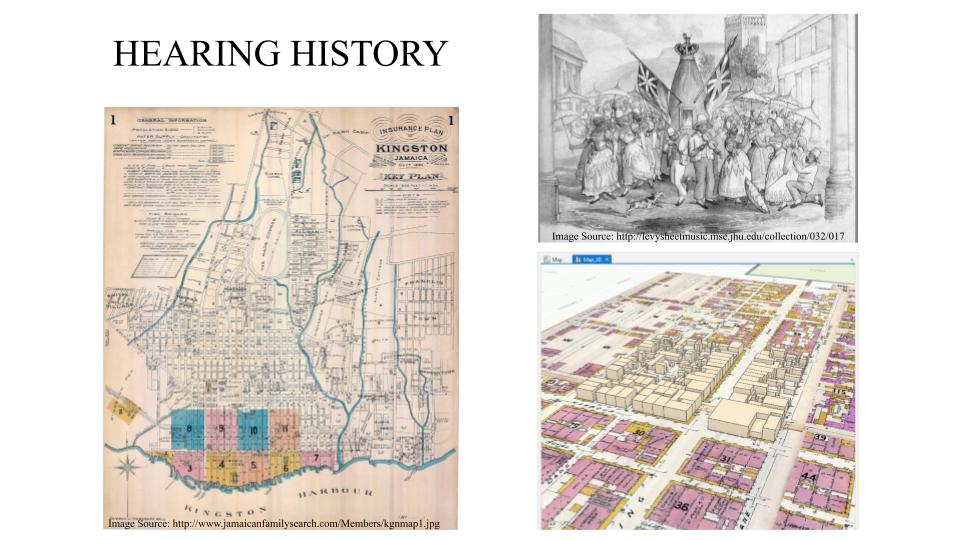
Hearing History
“What does it mean to try to build a soundscape of a time and place for which there are no recorded sounds? Layering historic maps with modern ones, using software to build up blocks along a route where the traditional processions traveled, we are trying to do just that. Throughout this whole project, I just kept saying, ‘I don’t know how to do this,’ and Brooke kept saying, ‘It will be fine. We can do this. It will be great.’ And it was fine: collaboration – that’s the key.”
~ * ~
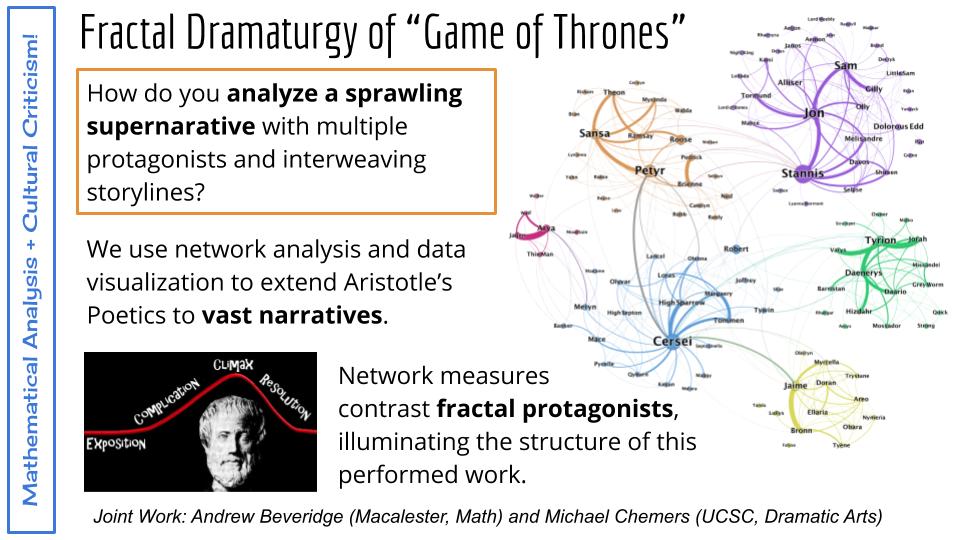
Fractal Dramaturgy of “Game of Thrones”
“People think math is important. They hate it. But they think it’s important. People love culture. But no one thinks it’s Important. It’s fascinating to be able to work on a project that thinks about both perspectives, to think about how the chips on our shoulders about our own fields are opposite, and to do something that brings together the value of both.”
~ * ~
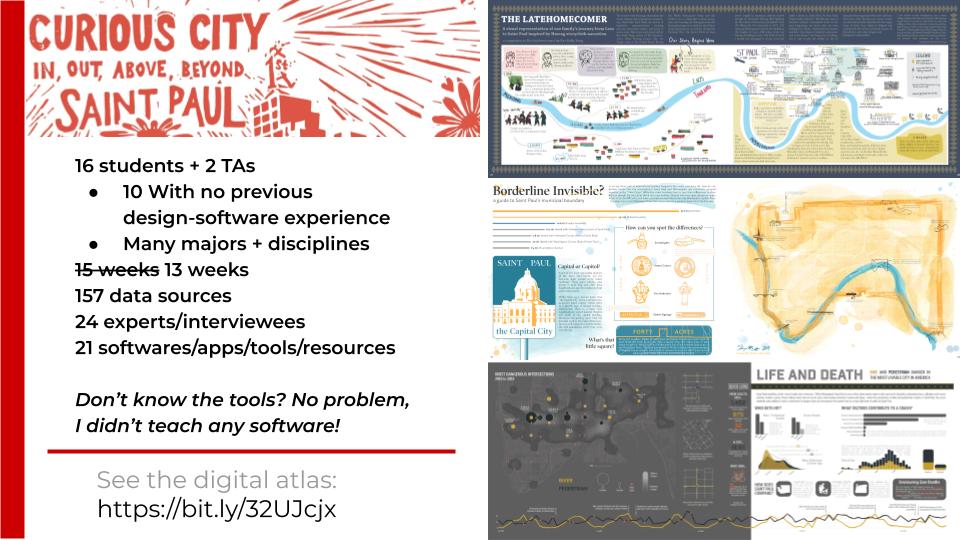
Curious City
“I think about mapping as not just a tool of colonialism but also something that does good in the world. This project combines a focus on positive modes of mapping with the high-speed tech work that many fields require (think of news media, which demands pulling together data sets into a visualization very quickly for things like infographics). For this project, I do not teach any technology. Instead, I help students figure it out, provide space for the work, and give credit for the time students spend failing to privilege experimentation on the way to stronger outcomes.”
~ * ~
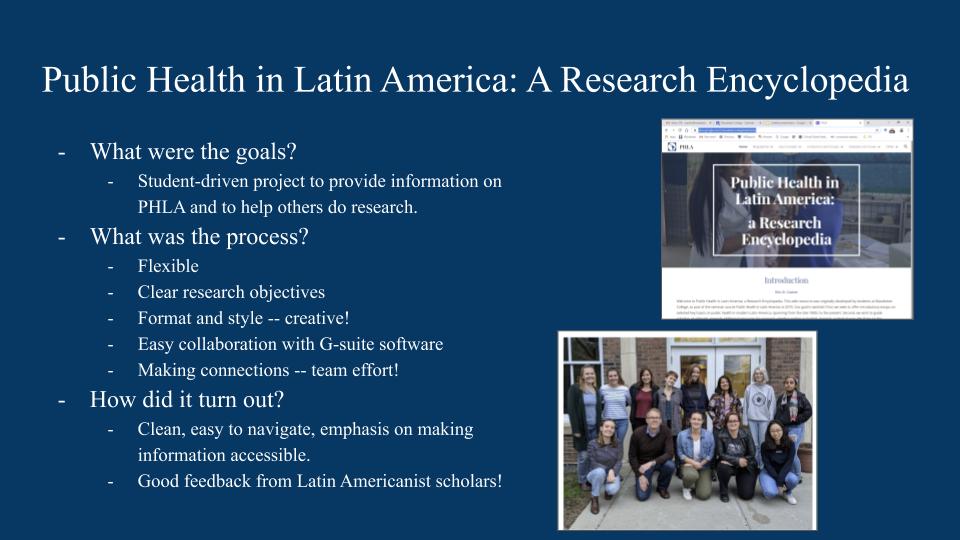
Public Health in Latin America: A Research Encyclopedia
“Each student wrote an article about a concept, a disease, an organization, and a person in order to produce here a set of articles of public health. With clear research objectives and an ambitious quantity of information to cover, we also found connections between our articles, and found ourselves learning from each other’s ideas as well as working on clear writing for a real audience.”